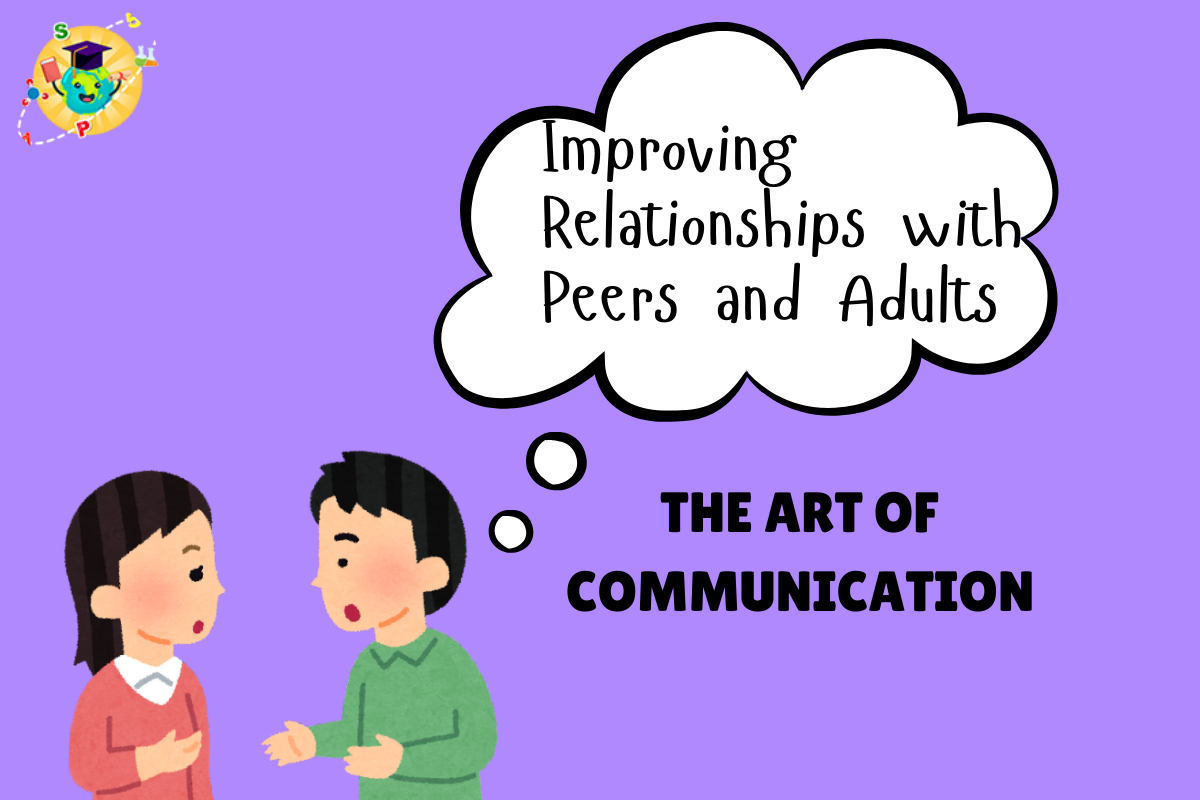The Art of Communication: Improving Relationships with Peers and Adults
By~ Scholar Planet
Created At: 06 Jun, 2024

Effective communication is an essential skill that significantly impacts our relationships with peers and adults. Whether it's in a school setting, at home, or in social environments, the ability to convey thoughts and feelings clearly and empathetically can enhance understanding, reduce conflicts, and strengthen connections. Here are some strategies to improve communication and foster better relationships.
Active Listening
One of the most crucial aspects of effective communication is active listening. This involves fully focusing on the speaker, understanding their message, and responding thoughtfully. To practice active listening:
- Maintain eye contact to show engagement.
- Avoid interrupting and allow the speaker to finish their thoughts.
- Paraphrase and summarize what the speaker has said to ensure understanding.
- Ask questions for clarification when needed.
Active listening not only helps you understand the other person better but also shows that you value their perspective.
Empathy and Understanding
Empathy is the ability to understand and share the feelings of others. By putting yourself in someone else's shoes, you can better appreciate their point of view and respond more compassionately. To enhance empathy:
- Acknowledge emotions and validate the other person's feelings.
- Avoid judgment and be open-minded about different perspectives.
- Express your own feelings honestly and respectfully, fostering mutual understanding.
Clear and Concise Expression
Being clear and concise in your communication helps avoid misunderstandings and ensures that your message is received accurately. Here are some tips:
- Be specific about what you want to convey.
- Use "I" statements to express your feelings and needs without blaming others (e.g., "I feel stressed when...").
- Avoid ambiguous language and be direct in your requests or opinions.
Nonverbal Communication
Nonverbal cues, such as body language, facial expressions, and tone of voice, play a significant role in communication. To enhance your nonverbal communication:
- Be aware of your body language and ensure it matches your words.
- Use appropriate facial expressions to convey your emotions.
- Maintain a positive tone and be mindful of your vocal pitch and volume.
Conflict Resolution
Effective communication is vital in resolving conflicts. Approach conflicts with a problem-solving mindset:
- Stay calm and composed, avoiding escalation.
- Listen to the other person's perspective and acknowledge their feelings.
- Find common ground and work collaboratively towards a solution.
Building Trust
Trust is the foundation of strong relationships. Build trust through:
- Consistent and honest communication.
- Respecting boundaries and privacy.
- Following through on commitments and being reliable.
Improving communication skills is an ongoing process that requires practice and mindfulness. By actively listening, empathizing, expressing yourself clearly, and being aware of nonverbal cues, you can enhance your relationships with peers and adults. Effective communication fosters understanding, reduces conflicts, and builds stronger, more meaningful connections.
